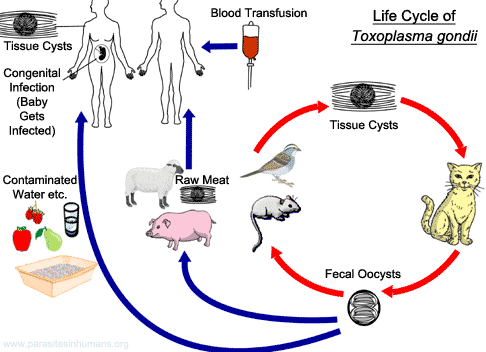Toxoplasma, the perfect parasite - learning activities
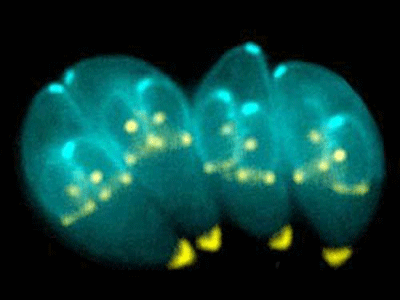 Introduction
Introduction
The story about Markus Meissner's research into Toxoplasma gondii and the other apicoplexans suggests lots of interesting topics for discussion and research.
A good way to generate these is to start with the statements in the news story, and in particular the analysis of these into different statement types. Learners will have done this already if they've gone through the basic lessons and the follow-up lessons.
If they haven't, here's a copy of our thoughts on the different statement type in the story of Markus's research.
The rationale for this is described here.
Selected topics
So let's take a look at the statements in the story about Toxoplasma gondii the apicoplexans and Markus Meissner's research.
Among others the following look interesting and worth exploring in more detail:
1) So chances are one of us has Toxoplasma gondii living in our body.
2) The parasite has a complicated lifecycle.
3) But it can be a serious problem for two groups - those with immune systems that don’t work well, such as people with AIDS, and pregnant women.
4) Toxoplasma belongs to a group of parasites called the apicomplexans. This large group includes several that are much nastier than Toxoplasma, including the plasmodium parasites that cause malaria.
5) "If we can really understand the biology we might be able to find an Achilles' Heel. That could then be used not just against Toxoplasma but against other apicomplexans, especially plasmodium."
6) Apicomplexans such as Toxoplasma gondii have special mechanisms inside them that allow them to move around and to invade other cells. Understanding these is the first aim of his research, says Dr Meissner.) A drug that only affects the parasite and not the host cell would be a very good medication.
7) So while working for his PhD at Heidelberg University, Dr Meissner (who wasn't a "Dr" yet) developed a kind of switch for 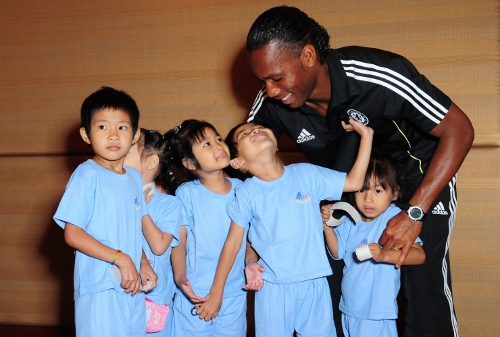 Toxoplasma genes. "That's what kickstarted my scientific career."
Toxoplasma genes. "That's what kickstarted my scientific career."
8)Well a switch lets you decide when, in theparasite's complicated lifecycle, you want to stop the gene working. You can even switch it back on again, says Dr Meissner.
9) "I've always loved trying to understand how things work. But how a snail or a Toxoplasma parasite can glide is much more mysterious than how a car can drive."
Selected topics
Below we've picked out half a dozen of these statements, re-ordered them roughly starting with the easiest, and provided extra information and guidance for class activities.
Several of these contain audio clips of Markus in his office and laboratory at Glasgow University.
So chances are one of us has Toxoplasma gondii living in our body
Have a listen to what Markus says about this.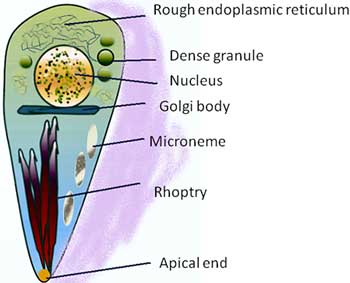
Now here's your assignment for today:
Working in your groups* we want you to find out about parasites. That's a pretty broad assignment, so let's narrow it down a little.
Choose any animal you like and investigate all of its parasites.
The obvious animal to do this with is the human. But some people get a bit freaked out when they discover all the different living things that can share their space with them.
So by all means choose the dog, cat, parrot or three-toed sloth, if you prefer. Just make sure you can get information on them and their parasites fairly easily online, in the library or on TV - without having to go on an expedition up the Amazon.
The deliverable for this project (what does that mean?) is a poster. We want one that captures the essential information you've dug out and tells the animal you're interested in how to avoid nasty parasites, how to live with those that aren't too bad and how to tell the difference.
Make it colourful, attractive and striking. Use humour, shock tactics and anything else you fancy. Be creative.
Present it to the class and get their feedback.
*Note on cooperative learning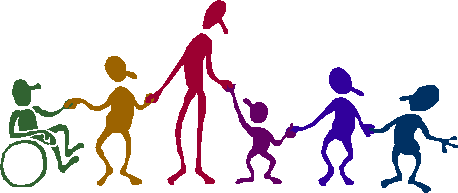
Throughout Real Science when we talk about groups, we mean cooperative learning groups.
Cooperative learning is a vital part of the Real Science approach.
Here is the point:
Cooperative learning is group work.
But group work is not necessarily cooperative learning.
In cooperative learning, small teams of students use a variety of activities to improve their understanding of a subject. Each member of a team is responsible for his or her own learning - and also for helping teammates to learn. Students work through an assignment until everyone understands and has made a contribution.
If your science teachers don't already use cooperative learning, please point them to some of the links below that tell them all about it. Try to persuade them to let you have a go. It's good fun. It improves your learning. And it helps you get on better with your classmates.
Cooperative learning links
TES Scotland articles
The parasite has a complicated lifecycle.
Let's listen again to Markus
So now we want to take a look at Toxoplasma gondii and its lifestyle. As Markus says - and the diagram on the left shows - this is pretty complicated.
What we want from this activity is an interactive game that demonstrates the life-cycle of Toxoplasma gondii.
To give you an idea of what's possible take a look at these games on the lifecycles of the frog and the butterfly.
Have a look also at this one on the lifecycle of the frog again and of the human being.
You don't have to use software to create your Toxoplasma lifecycle game. You can use cardboard and cut-outs if you like.
But if the idea of making a computer game appeals we suggest using something like Scratch, which you can find here.
Education Scotland has done a lot of work on games-based learning and before starting this assignment it's worth asking your teacher to take a look here.
Before the games design stage though you will need to find out exactly what the different stages in Toxoplasma's lifecycle are. We'll leave this to you. All we'll say is that you need oocysts, tachyzoites, bradyzoites. You also need to know what tissue cysts are.
Have a good game!
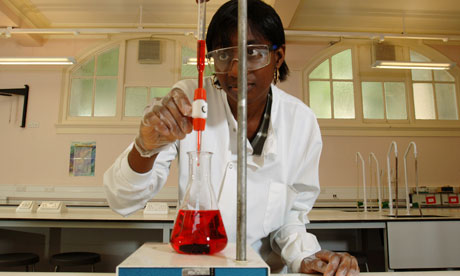 So
while working for his PhD, Dr Meissner developed a switch for Toxoplasma
genes. "That's what kickstarted my scientific career," he says
So
while working for his PhD, Dr Meissner developed a switch for Toxoplasma
genes. "That's what kickstarted my scientific career," he says
Right then, in your groups you're going to do a little scriptwriting and role-play. The characters in this story are a careers adviser, a budding scientist and a cool friend who hates science.
Groups roles for this assignment could be, for example, researcher, reporter, listener, scriptwriter, drama consultant, actor, etc
Have a listen first to some of Markus's own story about himself, how he thinks, and how he became a scientist.
We've split this into several small sections of audio. Here they are:
"I'm not a big city person but I do like Glasgow." Family talk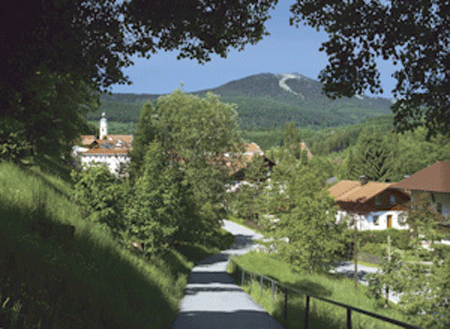
"It's at the edge of the Bavarian Forest." Home and Scotland
"The first three months I had real problems to make myself understandable, to even order a hamburger." Science and English
"Then I went to the army for one year." School and after
"It can be frustrating when you get for the first time in a lab and things that should work just don't work." University and first steps after
"I went to Texas, California, Chicago, Nashville. It was a fantastic year. In America
"As a student you're used to learning everything from the books. But you have to question results over and over again. Learning to think like a scientist
"Then I got hooked up with Toxoplasma gondii." PhD and Toxoplasma gondii
"I think it's one of the most cited papers in Toxoplasma." Kickstart career
"Our core interest is invasion pathways in these organelles." Research at Glasgow University
Listen to one, two or as many of these as you like, to give you the background you need before writing your own story.
You might also want to Google "How to become a scientist" and take a look at a few of these for more background.
Toxoplasma belongs to a group of parasites called the apicomplexans. This large group includes several that are much nastier than Toxoplasma, including the plasmodium parasites that cause malaria.
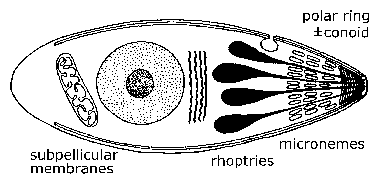 In
this assignment let's see if you can first find some quick answers to
these questions by using Google or some other search engine.
In
this assignment let's see if you can first find some quick answers to
these questions by using Google or some other search engine.
How many different species have been found that are members of the apicomplexans?
Are they all parasites?
Give some examples of the different types of cell they can form and why they do so.
How many of the apicomplexa are known to infect humans?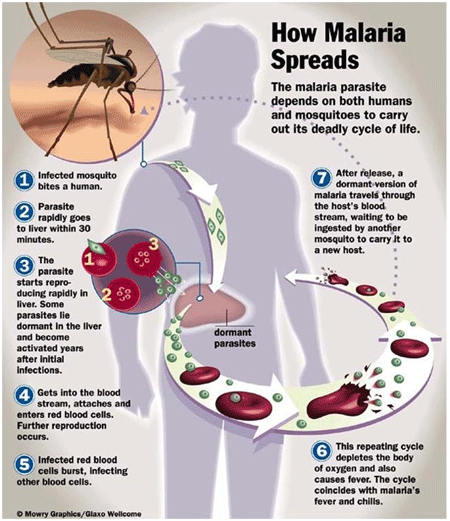
What are their names?
Let's take a look now at the nastiest of the apicomplexans - the plasmodium parasites that cause malaria.
Malaria has killed more people in the history of the world than any other disease.
It's also been said that malaria has killed more people than all the wars there have ever been. So the first thing we'd like you to do is some simple sums to estimate whether this is true. We're not going to give you any numbers to start with.
This is an example of a Fermi problem - one in which you're given very little information and asked to use logic and simple sums to get an answer that shouldn't be too far from the truth.
It's amazing how far you can get, with many problems, without knowing exact numbers, just by using a little knowledge and a fair bit of thought.
Here is a nice collection of Fermi problems and here are lots of links to find out more.
Around the world 300 to 500 million people are infected with malaria every year. It kills around a million of these - most of them young children.
There's a set of classroom lessons and activities on malaria here.
d) Malaria game
Have a listen to Markus on how science and education are both needed in the struggle against Malaria.
"How can we translate this huge gain of knowledge to the people in need?" Big question
 "There are areas where you get hundreds of infectious bites a day and you cannot escape." Prevention?
"There are areas where you get hundreds of infectious bites a day and you cannot escape." Prevention?
"You cannot dry up the Amazon." Science or nets?
Now have a listen to Bill Gates on mosquitos, malaria and education: "There's more money put into baldness drugs than into malaria."
We're going to come back to malaria, so this is just the first activity. We'd like you to create an interactive game, as you did for Toxoplasma, that shows the lifecycle of the plasmodium parasite.
Please use Scratch, other educational game software, or card and materials on the desktop, whichever you prefer.
Take a look at this Malaria chase game if you like.
Want more?
Glow Science

